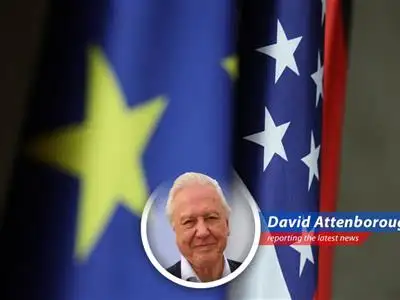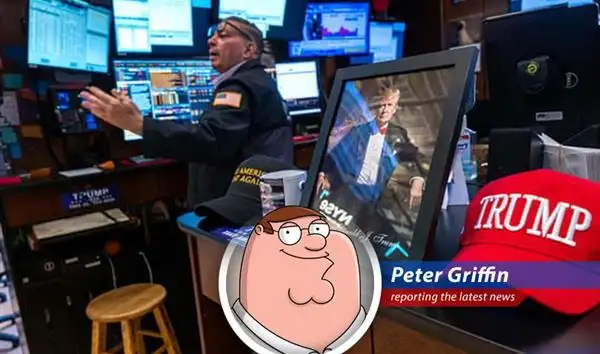
A Bull Run in the Old World?
Ah Europe. A continent of ancient forests rolling hills and apparently a rather enthusiastic stock market rally! The Stoxx Europe 600 index like a particularly sprightly mountain goat has climbed roughly 7% this year. Investors perhaps weary of the tumultuous political landscape and inflated valuations across the pond in the U.S. are flocking to the Old World seeking refuge. One might say they're hoping to find a nice quiet pond to settle in much like the Great Crested Grebe I once observed on a serene lake in Bavaria. But as always we must ask ourselves: what is really going on here?
Beneath the Surface: A Troubling Current
Now let's not be fooled by the shimmering surface. As any seasoned explorer knows the most fascinating and sometimes most dangerous creatures lurk beneath. Analysts are murmuring a low unsettling hum like the drone of cicadas before a storm. They suggest this rally is predicated on a rather fragile assumption: that this global trade war is just a temporary squabble a passing phase like a brief shower in the Serengeti. But what if it's not? What if this squabble turns into a full blown brawl leaving lasting scars on the economic landscape? The Federal Reserve's revised GDP forecast for the U.S. hints at a gathering storm with growth predictions being slashed like a budget in a particularly parsimonious government. It's a worrying sign indeed. The U.S. has been the central driver of the global economy and such downturn is going to eventually be felt in the European shores as well.
Ignoring the Ominous Signs?
Equity markets it seems are whistling a merry tune placing their bets on central banks riding to the rescue with generous easing policies and political leaders somehow pulling a rabbit out of a hat at the last moment. But are they perhaps ignoring the risk of a significant economic downturn? According to the Bank of America markets are effectively pricing in a scenario where global growth remains completely unscathed by these pesky tariffs. "That's not the situation that we're in," Sebastian Raedler from BofA warns and I must confess I share his concern. It reminds me of those Lemmings marching blindly towards the cliff; blissfully unaware of the impending doom. Are European markets sleepwalking into a similar fate?
The Price of Protectionism
Let's talk numbers. Corporations are forking out a staggering $190 billion more in tariffs on an annualized basis a sum equivalent to 7% of their first quarter profits! And here's the rub: they haven't passed these costs onto the consumers. This means companies are absorbing the price increase which is set to squeeze their profit margins like a python constricting its prey. "If you look at margin expectations they're at all time highs. So the market has not yet taken this seriously," Raedler points out. It's as if they're expecting endless bounty a never ending feast. But as any creature in the wild knows resources are finite and winters always come.
The Bearish Call and the Cautious Stance
Now some brave souls are daring to speak out against this prevailing optimism. Bank of America's Raedler a seasoned observer of these markets has long held a bearish view on European equities. He predicts the Stoxx Europe 600 index will decline by 11% over the next year. Even JPMorgan while not quite as pessimistic advises caution suggesting the eurozone will likely consolidate for some time as it grapples with ongoing trade negotiations. It reminds me of the African Wild Dogs they are always vigilant and cautiously analysing a situation before striking. Their analysis centers around the economic drag created by tariffs especially the impact on the U.S. a critical market for European exports.
A Complex Reality
The market's optimism fueled by hopes of tariff rollbacks and central bank easing may be a mirage. As TD Cowen points out even Adidas initially confident under a 10% tariff scenario now expects earnings guidance to be lowered following the U.S. Vietnam deal. The impact they warn is unlikely to be limited to just one company. Vietnam exports a third of all North American footwear and 15% of American apparel. The situation is indeed very interesting. The reality of the tariff situation however could be more complex. As we've seen time and again in the natural world things are rarely as simple as they seem. It is my view that we must proceed with caution observe carefully and hope that these markets do not find themselves in a particularly sticky situation. Only time will tell whether these European stocks will find themselves sitting pretty or whether they are as the saying goes perched precariously on a 'house of cards'. We can but watch and wait.
Comments
- No comments yet. Become a member to post your comments.












